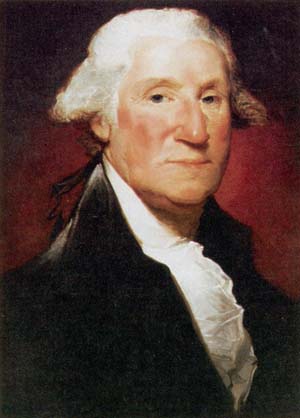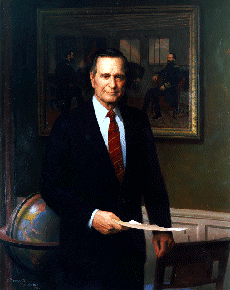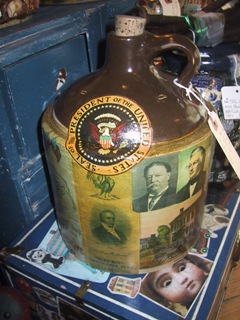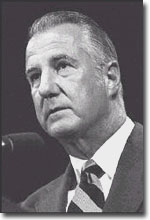| 1 | George I | George Washington |
|---|---|---|
| 2 | John I | John Adams |
| 3 | Thomas I | Thomas Jefferson |
| 4 | James I | James Madison |
| 5 | James II | James Monroe |
| 6 | John II | John Quincy Adams |
| 7 | Andrew I | Andrew Jackson |
| 8 | Martin I | Martin Van Buren |
| 9 | William I | William Henry Harrison |
| 10 | John III | John Tyler |
| 11 | James III | James Knox Polk |
| 12 | Zachary I | Zachary Taylor |
| 13 | Millard I | Millard Filmore |
| 14 | Franklin I | Franklin Pierce |
| 15 | James IV | James Buchanan |
| 16 | Abraham I | Abraham Lincoln |
| 17 | Andrew II | Andrew Johnson |
| 18 | Ulysses I | Ulysses Simpson Grant |
| 19 | Rutherford I | Rutherford Birchard Hayes |
| 20 | James V | James Abram Garfield |
| 21 | Chester I | Chester Alan Arthur |
| 22 | Stephen I | Stephen Grover Cleveland |
| 23 | Benjamin I | Benjamin Harrison |
| 24 | Stephen I | Stephen Grover Cleveland |
| 25 | William II | William McKinnley |
| 26 | Theodore I | Theodore Roosevelt |
| 27 | William III | William Howard Taft |
| 28 | Thomas I | Thomas Woodrow Wilson |
| 29 | Warren I | Warren Gamaliel Harding |
| 30 | John IV | John Calvin Coolidge |
| 31 | Herbert I | Herbert Clark Hoover |
| 32 | Franklin II | Franklin Delano Roosevelt |
| 33 | Harry I | Harry S. Truman |
| 34 | Dwight I | Dwight David Eisenhower |
| 35 | John V | John Fitzgerald Kennedy |
| 36 | Lyndon I | Lyndon Baines Johnson |
| 37 | Richard I | Richard Milhous Nixon |
| 38 | Gerald I | Gerald Rudolph Ford |
| 39 | James VI | James Earl Carter, Jr. |
| 40 | Ronald I | Ronald Wilson Reagan |
| 41 | George II | George Herbert Walker Bush |
| 42 | William IV | William Jefferson Clinton |
| 43 | George III | George Walker Bush |
| 44 | Barack I | Barack Hussein Obama |
This page began as: Some Ruminations on History, and on our American Regents, on the occasion of the second Coronation of His Imperial Majesty George III back in 2005.
I remain fond, as a nominal UK native, raised in the USA, of this idea of numbering American Presidents as if they were real Monarchs. And, this page has been overdue for a touch-up, after all we witnessed, over two years ago, to condign fanfare, the Coronation of Barack I. In keeping with the original theme of this page, it is worth noting that while tales of descent from African kings that Barack I was told as a boy turned out to have been apocryphal, he may well be able to claim descent, on his mother's side, from a Scottish king, and shared ancestry with as many as seven American regents.

In 1789, our first president under our current constitution, George I, effectively succeeded British king George III, of the House of Hanover, as America's supreme authority. Britain's

Reckoning time in terms of the reigns of one's country's regents is a time-honoured Anglo-Saxon tradition, I'm told, and one I've informally observed without thinking about it myself over the years. "That technology was already considered obsolete during the Nixon Administration", would be the kind of thing I'd find myself saying.
I'm amused by the idea of naming our Heads of State in the same traditional manner as Popes and Kings, using a single Christian Name, and a Roman Numeral. The results of doing so to America's forty-three regents are shown in the table to the right. Doing so gives one pause, and causes one to ponder the considerable imperial trappings of the American presidency.

We have witnessed no fewer than five true cases of dynastic succession, accounting for fully ten of forty-three reigns. It is difficult indeed to fathom how such numbers could have arisen by chance, or even through merit.
Our first dynasty, the House of Adams, saw the son of John I, John II retake the throne in 1825.
The second, the House of Harrison, witnessed the ascension of Benjamin I, the grandson of William I in 1889.
In 1893, the Cleveland Restoration saw Stephen I reclaim the throne himself from Benjamin I, whom had in turn taken it from him.
In 1933, the inauguration of Franklin II, a cousin of Theodore I returned the House of Roosevelt to power. Interestingly, even though Franklin II and Theodore I themselves were fifth cousins, Franklin II's consort, Anna Eleanor, was herself a Roosevelt, and indeed, was the niece of Theodore I. The Hapsburgs, and Europe, held no monopoly on aristocratic inbreeding, it would seem.
Martin I was of purely Dutch ancestry. He and his wife Spoke Dutch at home. Martin I and Theodore I were third cousins twice removed.
The ghastly murder of the youthful, urbane and widely admired Irishman John V in 1963 brought Lyndon I to the throne, but this reestablished no Johnson dynasty, for he was of no relation whatsoever to Andrew II. The House of Johnson is a false dynasty.
Indeed Andrew II.and Lyndon I are among only a relative handful of those who have occupied the throne whom are not at least distant cousins to at least some of the others who've sat upon it. The other American Commoners: Andrew I, James III, Chester I, William III, Dwight I, John V, James VI, Ronald I, and William IV. James VI is related, however, to genuine indigenous American Royalty: Elvis Presley.

Finally, the first Coronation of George III, the son of George II, and the scion of the House of Bush, in 2001, consummated America's first father-son dynastic succession since the restoration of the Adams Family. Barbara Pierce Bush, the consort of George II, and mother to George III, is herself a distant cousin of Franklin I.

Our coronations are traditionally the occasions where we put aside the rancor and division that accompany our often contentious imperial ascension process, and 2005 we united behind, and swore our allegiance to George III, he having prevailed over both a challenger (the would-be Albert I), and an usurper (an aspiring John VI) to lay claim to his crown.
Barack I took his crown in 2009 by vanquishing a fellow son of a Scottish King William I and yet another prospective John VI.
Were we more like say, the United Kingdom of Great Britain and Northern Ireland, we'd further festoon his title with such honourifics as Monarch of the Forty-Eight Contiguous United States of America and Alaska and Hawaii, Defender of the Faith, and Emperor of Mesopotamia, but we Americans are an egalitarian lot, and tend to eschew such airs and pretensions.
Despite the fact that the United States is nominally a constitutional republic, and not a monarchy, eight of America's forty-two regents have, tragically, and ironically, nonetheless (inadvertently, one must presume) enjoyed the imperial prerogative that a King (all have been male) may serve for life. Four, William I, Zachary I, Warren I, and Franklin II (our longest serving regent), died on the throne of natural causes.

We have, sadly, witnessed four regicides in the course of our brief history. Abraham I, James V, William II, and John V, all saw their reigns brought to an end by assassin's bullets. In 1981, Ronald I was shot and severely wounded, and nearly followed suit, but for timely medical attention. Indeed, historians believe that both James V and William II could have survived their wounds given better medical care.
Gerald I, and Harry I both survived assassination attempts unscathed while on the throne. Franklin II survived an assassination attempt unharmed during the interregnum prior to his coronation. Theodore I was shot, but survived during his Bull Moose campaign to restore the House of Roosevelt in 1912, a battle that split the Tories between him and William III, thereby paving the way for the eventual ascension of the scholarly pacifist Thomas II.
There are many who believe that only assassin's bullets and scandal thwarted the dynastic ambitions of the House of Kennedy and the eventual elevation of John IV's siblings Robert I, and/or perhaps even Edward I to the throne. The untimely death of Kennedy Crown Prince, and paparazzi favorite, John Jr. in 1999 further diminished the family's dynastic potential.
Amendment XXII to the constitution effectively limited the reign of any given individual to no more than ten years. Even before this, reigns were customarily short, especially by comparison with European standards, in keeping with the precedent set by George I. For example, the reign of Queen Victoria spanned those of fully eighteen American regimes, from Martin I, through William II. Indeed, Franklin II was widely excoriated for breaking George I's precedent, and his breach thereof helped lead to the passage of the twenty-second amendment.

One regent, Richard I, was forced to abdicate in 1974. Alas, not for love. His successor, Gerald I, thereupon became America's first utterly unelected Head of State, having been appointed, not elected to the rank of Vice-President of the Realm, after the heir apparent who would have been Spiro I was forced to abdicate in disgrace, restoring at last the sacred principle of rule by Divine Right.
God Save the King O Lord our God arise, Scatter his enemies And make them fall; Confound their politics, Frustrate their knavish tricks, On Thee our hopes we fix, God save us all!
© 2005, 2011 by The Laputan Press, Ltd.
In keeping with the spirit of Catfish in the Memepool, I've located another 'blog where huge swaths of this notion had emerged quite independently in an at times uncannily similar manner. I'm grateful to this site's author for his superior research into the Christian names for Stephen I, Thomas II, and John IV. Here is another hit. Here is a fascinating rundown on the ancestry of the presidents from Burke's Peerage.
